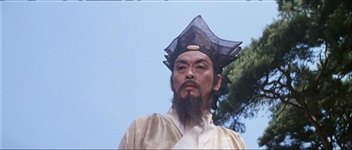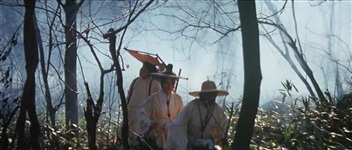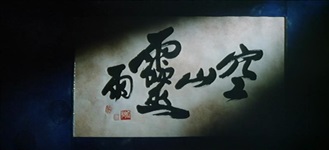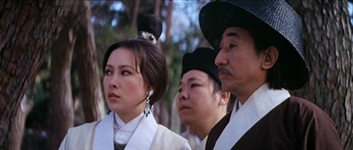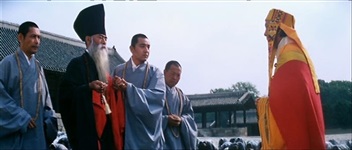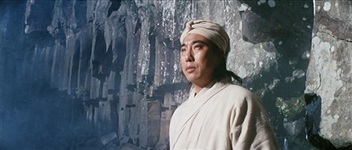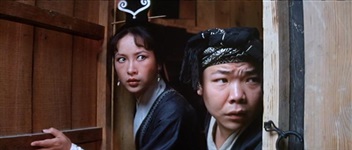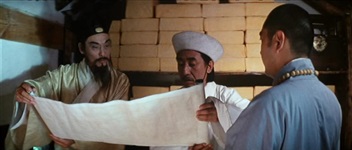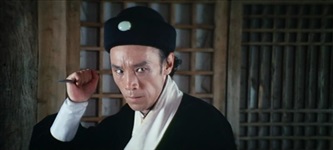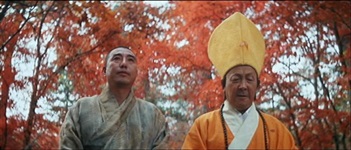Raining In The Mountain (1979)
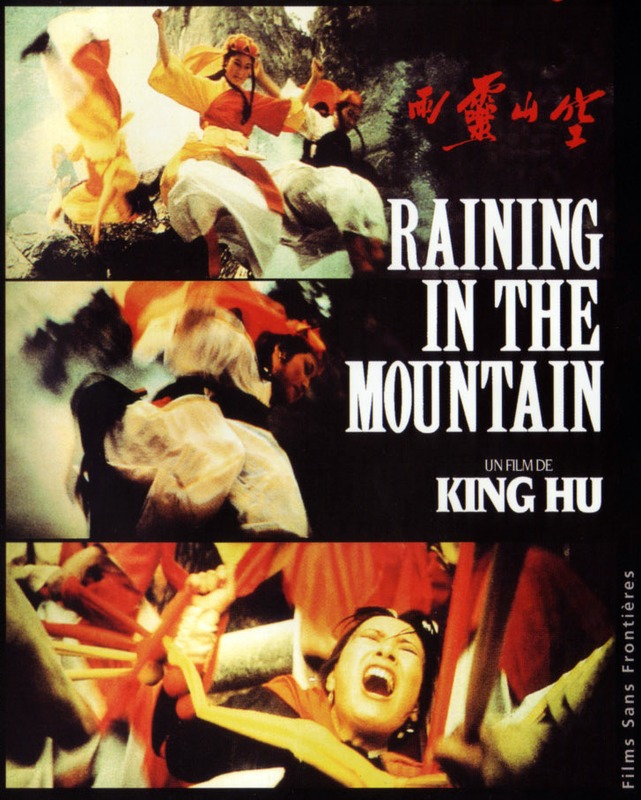
The abbot of the Three Treasures Temple is nearing the end of his life, and the time has to come to choose a successor. He invites three outsiders he considers to be learned and wise to help arbitrate the succession. Esquire Wen is a scholar and a businessman who has helped the temple with donations, General Wang is the regional governer, and Wu Wai is a layman but an expert in Buddhist scripture. The three arive over a period of a day or so, each with their own retinue - and their own agendas. There are more agendas at play within the Temple as well, and the succession proves to be a more eventful affair than anybody was expecting.
RAINING IN THE MOUNTAIN has the intrigues and conspiracies that play out when a number of parties converge on a single location of his "Inn-based trilogy" (Come Drink With Me, Dragon Gate Inn and The Fate of Lee Khan) coupled with the gorgeous natural locations and Buddhist philosophy of his masterwork A Touch Of Zen. It is one of a pair of films he made after a four year break in filming, but has very little in common with it's nominal sister Legend Of The Mountain.
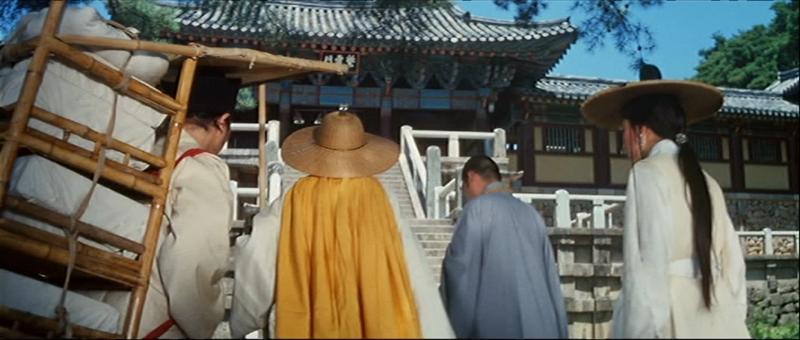
It's no secret that I'm a big fan of King Hu, and consider him to be the finest Chinese film-maker of his day (at the very least). He is one of the few directors working in Hong Kong and Taiwan whose name can comfortably be uttered in the same context as Akira Kurosawa, which is not a name I utter lightly in any context. King Hu's grasp of the cinematic artform was leagues above that of his peers such as Lo Wei and Chang Cheh, and his vision and craftsmanship were second to none in the martial arts genre. It's something of a tragedy that after the incredible success of COME DRINK WITH ME and DRAGON GATE INN, and the international accolades accorded to him for A TOUCH OF ZEN, Hu's career seemed to falter and he faded into obscurity. A brief attempt by Tsui Hark to bring him back into the limelight by hiring him to direct Swordsman in 1990 was famously unsuccessful, and he would make only one more film (Painted Skin, probably best forgotten) before his death in 1997.
So, RAINING IN THE MOUNTAIN is probably King Hu's last great film, certainly the last to show his vision and talent as a film maker. It is less epic than A TOUCH OF ZEN and less action packed than his earlier films, but it is written and filmed with the class and attention to detail that set him apart from his contemporaries. It is quite a sedate film, with the temple location and surrounding mountain scenery imbuing the film with a sense of calm and peace even as events within the temple become increasingly tense. One of King Hu's talents was for creating rich character dynamics, as different groups with conflicting agendas each pursue their own goals, occasionally forming temporary alliances as it suits their ends. The intrigues and rivalries are set against a backdrop of Buddhist philosophy, with the enduring serenity of the temple and beauty of nature emphasising the pettiness and futility of the greed and ambition of the less enlightened players present.
King Hu's other great talent was an eye for natural beauty, and RAINING IN THE MOUNTAIN is full of beautiful cinematography, especially when the film leaves the temple for the surrounding countryside. Some shots are just gratuitously gorgeous :-)
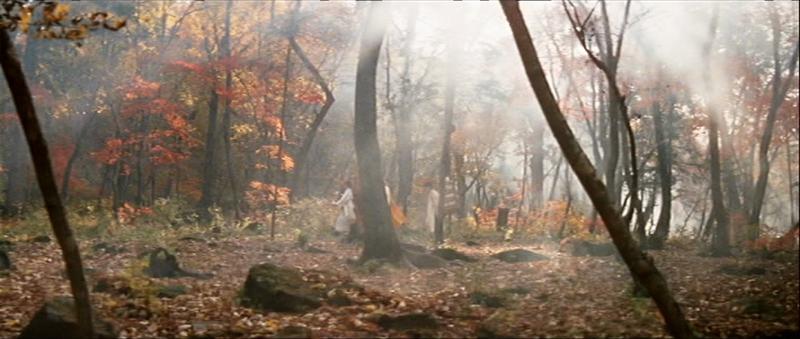
Although nominally a martial arts film, there is not really enough action for it to qualify for the genre - although it's not obvious what genre it should be assigned to instead, if any. It is the most philosophical of King Hu's films, with his desire to present his interpretation of Buddhist principles clearly being the driving force behind the film. I don't think 'Buddhist Philosophy' is a recognised genre, but let's put it in there anyway :-)
Cast
Crew
| Director | |
|---|---|
| Action Director | |
| Writer | |
| Editor | |
| Assistant Director | |
| Soundtrack |
